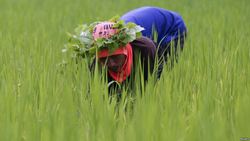
An international human rights organization says Southeast Asia is facing increasing conflicts and violence over land grab activity. A “land grab” relates to taking land quickly, forcefully and often illegally.
In this case, the International Federation for Human Rights says governments need to strengthen legal reforms to protect local people from investors seeking land for business use.
Economic growth but local conflict
The call comes as the 10-member Association of Southeast Asian Nations, or ASEAN, sees significant economic growth.
If ASEAN were a single country, it would be the world’s seventh largest economy. The group’s foreign investment reached $136.3 billion in 2014.
But this economic growth has led to conflicts between local communities and investors. While businesses seek land for factories and plantations, local residents and farmers are often forced to leave their land. These evictions can lead to violence and displacement.
Cambodia
The International Federation for Human Rights says land grabbing has displaced more than 800,000 people in Cambodia since 2000. It says the practice of land grabbing is a serious crime and has filed a case with the International Criminal Court.
Many land grabs in Cambodia are related to the sugar industry. The global aid group Oxfam has urged international sugar buyers to carry out policies against land grabbing.
Two of the world’s largest sugar buyers are the beverage companies Coca-Cola and PepsiCo. Coca-Cola is now investigating its key sugar suppliers. PepsiCo says it has adopted a global “zero tolerance” policy for land grabs.
A major sugar producer is called Mitr Phol. The company is based in Thailand and has operations in Cambodia.
In 2008, the Cambodian government granted the company access in a remote northwest province for sugar production. Rights groups said that, at the time, the 200 square kilometers of land was occupied by 2,000 families.
One villager told VOA that the Cambodian government forcibly evicted the entire community. “When the soldiers came I had already escaped. But I heard from a landlord later they had burned all the houses,” the villager said.
The Thai Human Rights Commission said Mitr Phol caused the “collapse of the community” after taking over the land. Those allegations, along with pressure from sugar buyers, eventually led the company to leave Cambodia.
Myanmar
The International Federation for Human Rights says land grabbing is also a big problem in Myanmar. The government has estimated that more than 800,000 hectares of land across Myanmar is considered “confiscated.”
The country’s Farmland Investigation Commission was set up in 2012 to investigate land grab cases. The new government of State Counselor Aung San Suu Kyi has set a priority of settling land disputes.
Debbie Stothard is secretary general of the IFHR. She says it will take “wide-ranging reforms” to Myanmar’s legal system to solve the problem.













